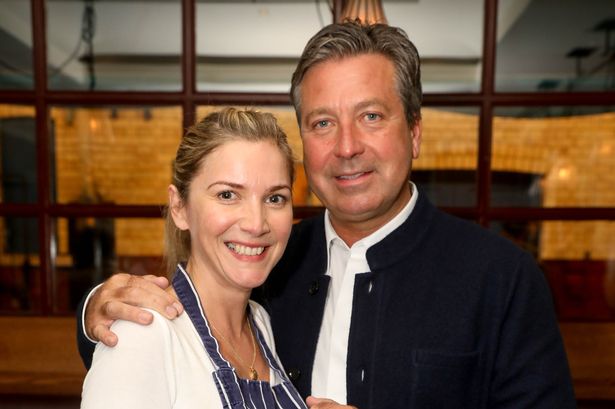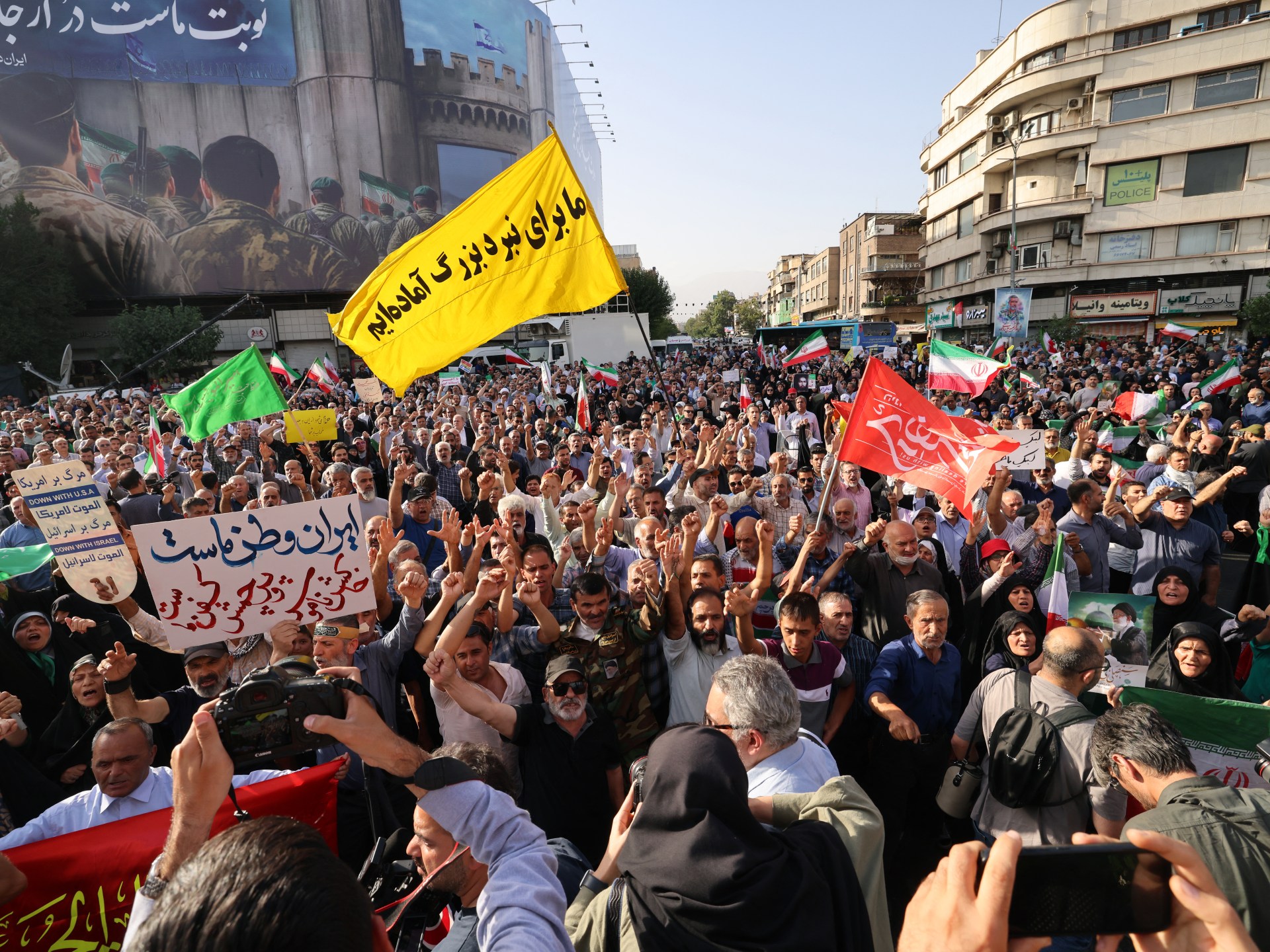North Korean leader Kim Jong Un wept as he threw himself over the coffin of a soldier draped in the national flag, one of six or so who were lined up in a row.
Photographs of him mourning were shown at a gala performance at a theatre in Pyongyang late last month, celebrating the anniversary of a mutual defence pact signed by Kim and his Russian counterpart, Vladimir Putin. The soldiers had been killed in action fighting alongside Russian forces in the war against Ukraine.
While Ukraine’s NATO backers have refused to deploy boots on the ground, North Korean fighters have participated in fierce battles over the region of Kursk in western Russia, partly occupied by a Ukrainian counteroffensive.
“North Korea is now a more important ally for Russia than Iran or China,” said Oleg Ignatov, senior Russia analyst for Crisis Group.
“North Korea supplies Russia with ammunition and some types of heavy weapons. As for the North Korean soldiers, Russian sources say they are professional and disciplined. At the beginning of the Kursk operation, they lacked the modern combat skills required for this type of war, which involves the use of large numbers of drones, but they quickly adapted.”
Looking ahead, there are signs that the Russian-North Korean alliance is advancing.
Two weeks ago, Ukrainian intelligence sources told CNN that North Korea was planning to triple its deployment along the front lines with Ukraine by dispatching up to 30,000 more soldiers.
Russia welcomes the additional manpower as, according to a count kept by the Russian independent outlet Mediazona and the BBC, Moscow’s army has suffered more than 116,000 losses since launching a full-scale war on its neighbour in 2022.
Some observers say North Korea, a famously isolated nation, also has plenty to gain.
“From a military operations point of view, North Korea now has had on-the-ground exposure to modern warfare, which South Korea does not,” said Rachel Minyoung Lee, a senior fellow with the Stimson Center’s 38 North and POSCO fellow with the East-West Center.
“From a policy point of view, North Korea’s improved ties with Russia give Kim Jong Un greater strategic manoeuvrability, due to immediate benefits like Russia’s oil and wheat shipments and possible transfers of military technology to North Korea – to the longer-term opportunities that Kim Jong Un appears to see by nurturing this relationship.”
She added that this all gives North Korea “little to no incentive to engage the United States, much less South Korea”.
“North Korea’s relationship with Russia gives Kim stronger leverage vis-a-vis China, which could have broader regional implications in the longer term,” she said.
Russia has reopened long-dormant supply chains to the North, ignoring international sanctions.
“The countries have resumed traffic along the Khasan-Tumen line,” Neimat Khalilov, a political scientist and member of the Digoria expert club, told Al Jazeera, referring to the Russian border with North Korea.
“Russia supplies coal, fertilisers and iron ore via railway crossings, while [North Korea] supplies seafood and rare earth metals … Separately, it is worth noting the modernisation of the [North Korean] port of Rajin, which is taking place with the participation of the Russian Federation. The goal of the project is to make the port an alternative to South Korean hubs, thereby increasing cargo flow through Vladivostok to North Korea.”
‘A qualitatively new phase’
The modern state of North Korea owes its existence to the Soviet Union, which routed Japanese colonial troops occupying the northern half of the Korean Peninsula at the end of World War II, while US forces did the same in the south. A Soviet and Chinese-backed Communist state was established, and the USSR remained a close ally throughout the Cold War.
But after the USSR collapsed in the early 1990s, North Korea lost its crucial backer and a vital source of aid, plunging the country into a catastrophic famine. Relations with the new Russia were not hostile, but not particularly close. In the 2000s and 2010s, Russia even joined the global sanctions aimed at curbing North Korea’s nuclear programme and alleged human rights abuses.
However, Khalilov said, “With the start of the SMO [the war in Ukraine, which is known as a ‘special military operation’ in Russia], they entered a qualitatively new phase.”
Pyongyang made its position clear from the beginning of the war in early 2022, as one of only five governments to vote against condemning Moscow’s invasion at an emergency session of the UN. The others were Belarus, Eritrea, Syria and Russia itself.
“In 2023, former Russian Defence Minister Sergei Shoigu visited the DPRK, and a few months later, as part of the North Korea-Russia summit, DPRK leader Kim Jong Un made an official visit to Russia, where he held talks with Vladimir Putin,” said Khalilov. “Particular attention is drawn to the change in rhetoric: joint statements increasingly include formulations about ‘common values’ and ‘strategic partnership’.”
Khalilov noted that the deployment of about 15,000 North Korean forces on the Kursk battlefield was provided for by Article 4 of the Comprehensive Strategic Partnership, signed by Putin and Kim last June. This allowed one country to provide “military and other assistance” to the other in case of foreign invasion.
The Kremlin initially denied claims made late last year by Ukraine and South Korean intelligence that North Koreans were fighting alongside Russian troops. The Russian command appeared to have undertaken some effort to hide it.
In December, The Guardian reported that North Korean soldiers wounded in Kursk were being treated in secret at Russian hospitals, while the soldiers were issued fake IDs identifying them as ethnic minorities from Russia’s Far East, should they die on the battlefield.
Ukrainian President Volodymyr Zelenskyy claimed that North Korean soldiers risked being executed by their own side if capture was imminent.
It was only in April that Russia and the North officially confirmed that their troops were fighting side-by-side, with Putin thanking “our Korean friends” for acting out of “solidarity, a sense of justice, and true comradeship” during the battle for Kursk. At the same time, Kim praised his soldiers on their “sacred mission.”
Russian officials have since promised North Korea that soldiers killed would be honoured in Kursk by erecting monuments and renaming streets after them.
Political scientist Fyodor Krasheninnikov has suggested the initial secrecy was sustained at North Korea’s request.








